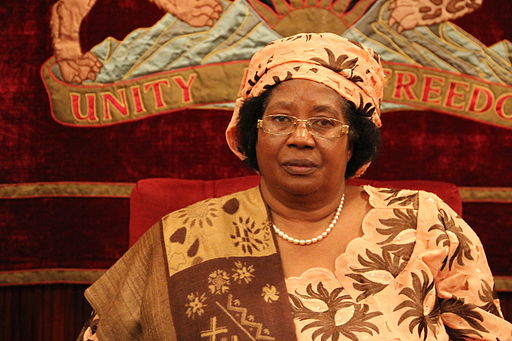by Harvey C.C. Banda
In Malawi it is a norm for the seating president to be seen meddling with traditional authority structures, especially in the run-up to the general elections. The presidents usually install or promote traditional leaders in the name of appreciating the latter’s support towards development initiatives by the government of the day. In actual sense, these presidents engage in such a (mal) practice as a campaign gimmick with a view to garnering support from the constituents. This has actually been the trend since the introduction of democratic governance (multi-party politics) in Malawi in 1994. This article succinctly argues that the continuation of such a practice despite heightened criticism from the opposition parties, the civil society, and the general public, is a manifestation that ruling parties generally lack development issues with which to engage the populace during political campaign rallies.
Looking at the mess created so far, it is practically difficult to tell which traditional ruler is senior over the other since in some cases very junior ‘chiefs’ have wrongly and undeservedly been elevated to senior positions. All this is done in the name of blatant appeasement. This is cheap propaganda, to say the least. The Office of the President can surely do better than this.
It all started during the one party regime when Dr. Hastings Kamuzu Banda elevated Lundu as paramount of the Chewa people to consolidate his rule after the Cabinet Crisis in 1964. This continued during the Bakili Muluzi regime, that is, 1994 to 2004. During this period, the first multi-party President, Bakili Muluzi, gradually gained mass support during his first term of office (1994-1999) largely because Malawians were fed up with the one party regime under the Malawi Congress Party (MCP), then led devotedly and passionately by the late Dr. Banda, and not necessarily because Muluzi was a political and economic heavyweight, himself. He also narrowly won support, especially among the people of southern Malawi, his home region, because of his insistence on income generation at household level: starting small-scale businesses. This was, so to say, the genesis of street vendors (mavenda), some of whom graduated into political praise singers and ululators (under the United Democratic Front youth wing). Muluzi, however, misinterpreted the support he came to enjoy. Eventually, his authority could hardly be questioned, especially during his second term of office (1999-2004). No wonder, he attempted to cling to power through his third term bid in 2003. This was a flop.
With time he started ruling by decrees and most of his decisions made at political rallies lacked thoughtfulness and were, simply put, blunders. He was fond of saying ‘whether you like or not” (mufune olo musafune) “I have elevated chief so and so to this position and my decision is final”. He, therefore, came under intense criticism so that one expected the next president to change the political approach of governing the country.
However, when late Professor Bingu Wa Mutharika took over, alas, nothing significantly changed. He continued with the (mal) practice of elevating traditional rulers as a ‘thank you’ for their support. The man was a renowned economist, locally dubbed economic engineer, but politically he was a novice! Hence he continued from where his predecessor (Bakili Muluzi) stopped: populist politics were the order of the day.
It is worth noting that within a few years Bingu Wa Mutharika won so many accolades, both locally and abroad, for the role he had played in transforming Malawi’s economy through food security, among others. Following this, he became both ‘untouchable’ and unstoppable. During his second term of office (2009-2012) he even went to the extent of forsaking Malawi’s donors through his concept of a zero deficit budget. This was, in fact, mere economic rhetoric if one was to go by the general suffering and pauperization of the grassroots as a result of its impact! Despite this, he was locally decorated by all sorts of names: Mose wa lero (New Moses of the Bible); Chitsulo chanjanji (a man who was as hard as the railway steel), etc. This reminds one of Benito Mussolini and fascism in Italy.
Following his sudden demise on 5th April 2012 (from cardiac arrest), came the current President, Mrs Joyce Banda, who is said to be heading boma la amayi (the lady’s Government). It is intriguing to note that in July 2013, ahead of the tripartite general elections of May 2014 in Malawi, elevating traditional leaders is top on President Mrs Joyce Banda’s agenda as she goes about visiting her development initiatives across the country. One would have expected that her initiatives such as the Mudzi (Village) Transformation Trust and the famed one-village-one-cow project (reminiscent of the one-village-one-product concept) should have been the real foci of her development song!
 |
| More of the same from President Joyce Banda? |
Looking at the trend so far, the future looks bleak: elevating traditional leaders has actually become the order of the day; a norm and not a malpractice. One wonders whether in the next ten years there will be any junior chiefs left: all of them will have become paramount chiefs! Yet, in a normal setting, you need the traditional authority in form of a pyramid: a few senior chiefs with more ordinary rulers (village headmen and their immediate seniors) at the base. Although ‘history repeats itself’ and while history is supposed to be lesson-giving, in Malawian politics this is seemingly not the case! Whither Malawi?
No comments:
Post a Comment